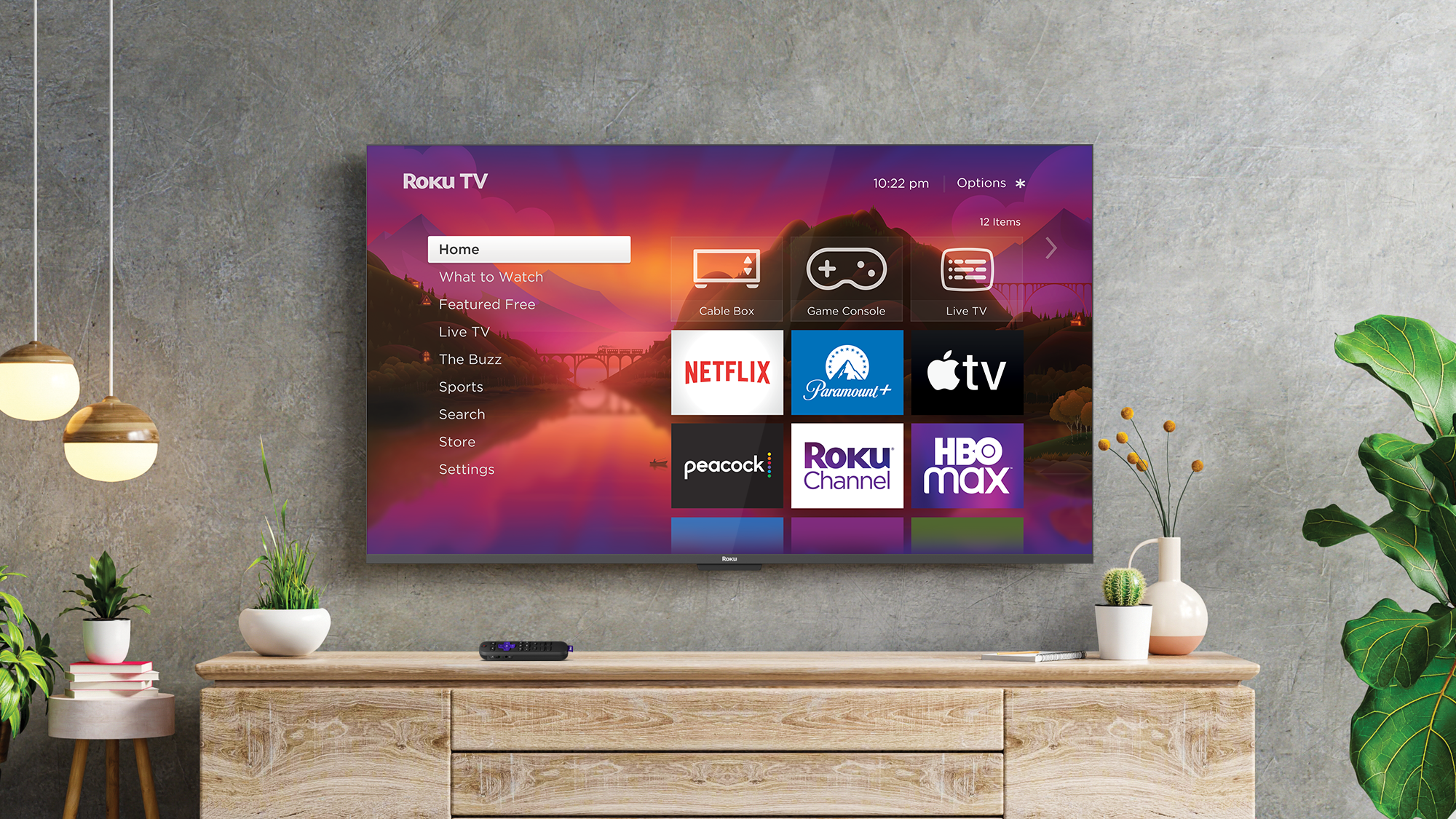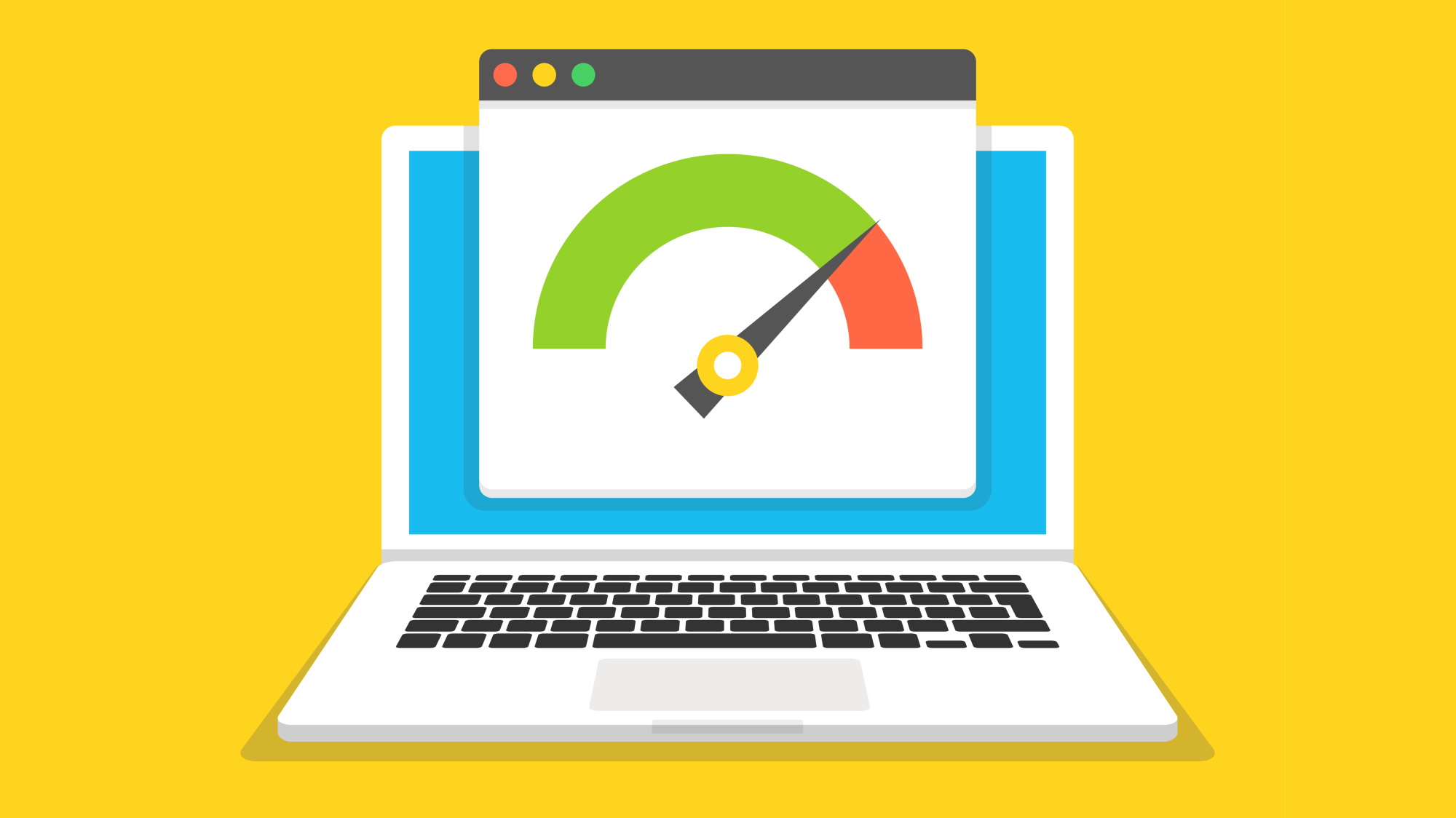What broadband speed do I need for streaming?

Streaming services such as Netflix, Disney+ and Amazon Prime provide people with the freedom to watch whatever content they want whenever they like. Gone are the days when the family would gather around the television to watch their favourite show live on a Sunday night. Now, streaming is the standard way for people from (almost) all generations to watch all of their favourite TV shows and films.
However, if you want to start streaming content, you need to have secured one of the best broadband deals. After all, if your internet package is too slow for streaming, you'll struggle with buffering and lag, which will ultimately ruin your experience!
Unsure what speeds you'll need to stream your favourite TV shows and movies online? This guide can help. Below, we've outlined the speeds you'll need to stream music, go on video calls and play all of your favourite games.
What is streaming?
Streaming is a term that usually involves watching video content directly on the internet without the need to download any files. Streaming platforms like Netflix and Amazon Prime can be accessed on a smartphone or tablet, on a smart TV, or by connecting a media streaming device to a regular TV.
In this respect, streaming is different from traditional live TV. Streaming allows you to choose what you want to watch and then start watching it at a time that suits you – often referred to as on-demand. Plus, streaming also allows you to pause, rewind and fast forward whenever you like.
Similarly, as streaming doesn't require any downloading, it also doesn't require much storage on your device and you can start watching your programme from the moment you press play.
Streaming can also take different forms, too. For example, you can stream music via Spotify and listen to a song whenever you like without buying it. Or, you can live stream a video of you playing your favourite video game, which other people on the internet can then watch. Game streaming can also mean playing video games by streaming content from the internet.
Sign up for breaking news, reviews, opinion, top tech deals, and more.
Although streaming provides a lot of advantages, there are also drawbacks you need to be aware of. For example, you'll most likely need to pay to access streaming services like Netflix. Similarly, you'll also need a reliable internet connection to avoid experiencing lag, buffering or other connection errors. Put simply, if your internet connection isn't fast and stable, streaming will be slow or sometimes not work at all.
What broadband speed do I need for streaming?
Your internet speed doesn't have to be extremely fast if all you're looking to do is stream your favourite shows and movies from the likes of Netflix and Amazon Prime. The recommended minimum speed for streaming programmes online ranges from 1.5Mbps up to 25Mbps, depending on the streaming platform you use and the level of definition you want to stream in.
While you can stream in standard definition on even the most basic internet packages, high definition and ultra-high definition streaming both place significant demands on your broadband. For example, while you may only need 3Mbps to stream in SD, you'll likely need at least 5Mbps for HD streaming and 25Mbps for ultra HD streaming.
However, you should keep in mind that these are the minimum recommended speeds. This means that they don’t take into account the fact that other devices will likely be using your connection at the same time. If you're streaming on Netflix, then your partner may also be scrolling on their social media profiles or your roommate may be on a video call. This means other people are also using your internet's bandwidth and you'll need to combine the minimum download speeds required when working out how much bandwidth you'll actually need.
For example, if someone is watching their favourite show in UHD and needs download speeds of 25Mbps to make this happen and someone else is on a Skype call that requires average download speeds of 3Mbps to function correctly, your internet will need to provide you with average download speeds of at least 28Mbps.
As a general rule, you should look for an internet package that provides an average download speed that's twice the amount you need to stream. So, if your research reveals you need 5Mbps to stream in HD, we recommend that you choose a package that provides you with average download speeds of 10Mbps.
Luckily, most of the fibre internet packages on the market today allow people to stream in HD on multiple devices simultaneously, so this shouldn't be an issue. However, cheaper ADSL packages may struggle in this instance. Similarly, if you want to stream in UHD, then ADSL packages won't be quick enough and even basic fibre packages that provide average download speeds of 30-40Mbps may be too slow.
What broadband speed do I need to stream movies and TV shows?
Above we've given you a general idea of the speeds required to stream content from streaming providers like Netflix. However, these are just a general guide and different providers recommend different minimum speeds for streaming TV shows and movies on their apps.
With this in mind, here are the minimum speeds each provider states you'll need to receive if you wish to stream in standard definition, high definition and full HD. As long as your internet provides you with more than the average speeds listed below, you'll receive what these providers call 'consistent performance', which means you'll avoid buffering.
| Service | SD Speed | HD Speed | UHD |
|---|---|---|---|
| BBC iPlayer | 1.5Mbps | 2.8Mbps | 24Mbps |
| Netflix | 3Mbps | 5Mbps | 15Mbps |
| Amazon Prime Video | 1Mbps | 5Mbps | 25Mbps |
| YouTube | 1.1Mbps | 5Mbps | 20Mbps |
| NOW TV | 2.5Mbps | 12Mbps | Not available |
| Disney+ | Not available | 5Mbps | 25Mbps |
| Apple TV+ | 8Mbps | Not available | 25Mbps |

What broadband speed do I need to stream music?
If you're only looking to stream music online, then you won't need download speeds that are quite as quick. However, you need to remember that if one person in your household is streaming TV shows while the other is listening to music on Spotify, you'll again need to combine the minimum download speeds required as you'll both be using bandwidth simultaneously.
Different music service providers also recommend different minimum speed requirements. These are:
| Service | Minimum Speed |
|---|---|
| Spotify (Mobile) | 0.096Mbps |
| Spotify (Desktop) | 0.160Mbps |
| Google Play Music | 0.320Mbps |
| Apple Music (iTunes) | 0.256Mbps |
| Amazon Music Unlimited | 0.5Mbps |
What broadband speed do I need for video calling?
During the pandemic, video calling services such as Skype and Zoom experienced a boom. Now, these services are part of our everyday lives - particularly those of us who regularly work from home.
Generally speaking, if you need to use these apps, you'll usually need upload and download speeds of around 3Mbps. In this scenario, you need strong upload and download speeds because your connection sends and receives data simultaneously.
Here are the minimum download and upload speeds you’ll need for each service:
| Type | Recommended Download Speed | Recommended Upload Speed |
|---|---|---|
| Skype (HD 1-1 video call) | 1.2Mbps | 1.2Mbps |
| Zoom HD group video call | 3Mbps | 3.8Mbps |
What broadband speed do I need for gaming?
Like video calling, online gaming also puts a strain on your broadband because it requires strong upload and download speeds.
If you want to play multiplayer games online with your friends, then you'll need a connection that's both fast and stable. If your connection isn't stable, it will lead to latency and packet loss, which means you'll receive slow response times during gameplay (essentially, the car you're driving may not turn when you want it to or a gun may not fire until half a second after you press the trigger).
The majority of game consoles require a minimum download speed of at least 3Mbps and a minimum upload speed of at least 2Mbps. Here's the minimum download speed you'll require to play on your chosen console without interruption:
| Service | Minimum Download Speed |
|---|---|
| Xbox One | 3Mbps |
| Xbox Series S | 3Mbps |
| Xbox Series X | 3Mbps |
| PlayStation 4 | 2Mbps |
| PlayStation 5 | 2Mbps |
| Nintendo Switch | 3Mbps |
| Nintendo Wii U | 1.5Mbps |
| PC/Mac | 3-6Mbps |
Similarly, over the past few years, the concept of live-streaming has also become increasingly popular. If you're unaware, live-streaming games across the internet effectively involves a person broadcasting their own video using a provider like Vimeo, YouTube, Facebook Live, or Twitch.
In this scenario, upload speeds are just as important as download speeds. As a general rule, live-streaming services usually require an upload speed of at least 1.6Mbps to live-stream in SD.
When it comes to 'low HD', upload speeds usually need to reach at least 3-3.5Mbps. Meanwhile, 'True HD' generally requires an upload speed of 3.5Mbps or above, although YouTube recommends 6Mbps.
Finally, Twitch recommends an upload speed of 6Mbps for high-quality, slow-motion 1080p, and recommends an upload speed between 9-13Mbps for faster live-stream content.
How do I check my broadband speed?
Concerned your current broadband connection doesn't provide you with the speeds required to stream your favourite shows on Netflix or game online? Well, the first thing you should do is conduct a broadband speed test. This will show you the exact speeds you're currently receiving.
The good news is that if you currently have a fibre broadband deal, then the speed you're receiving should be relatively close to the speed that was advertised when you signed your contract. This is because the fibre cables used for this type of connection don't allow the signal to weaken no matter how far you are away from the cabinet.
However, if you're relying on an ADSL connection that's delivered down the copper wires used by your existing phone line, then the speed you're receiving will likely be determined by how far you live from your local telephone exchange.
Do I need to worry about how much data I'm using?
The answer is likely to be no. Today, the vast majority of broadband contracts come with unlimited data. This means you can stream, download, and game to your heart's content.
However, you should check the details of your contract (particularly if you have a 4G broadband or 5G broadband deal) because some packages still come with data limits.
It's worth knowing that Netflix uses around 1GB of data for every hour of streaming, but this rises to 3GB if you’re streaming in HD and 7GB if you're streaming in UHD. As a result, if you have a data limit, then streaming could very quickly use all of your allocated data and leave you without a connection.
How do I find a new broadband deal with faster speeds?
Looking for a new broadband package that will allow you to stream on multiple devices simultaneously or help power your live streams? Luckily, the process of finding the best deal for you (at the lowest possible price) is simple.
All you need to do is pop your postcode into the widget below. Using this information, we can show you the best broadband deals in the area from the country's leading providers. No matter whether you're looking for an entry-level fibre package that will support basic streaming or a 'Full Fibre' FTTP package that will make UHD streaming and downloading simple, we can show the best options available in only a couple of clicks.
Alternatively, if you're looking for some buying advice and would like some help finding the best broadband package for your needs, visit our best broadband deals page.

Tom is a freelance copywriter and content marketer with over a decade of experience. Originally from an agency background, he is proud to have worked on campaigns for a number of energy providers, comparison sites and consumer brands.